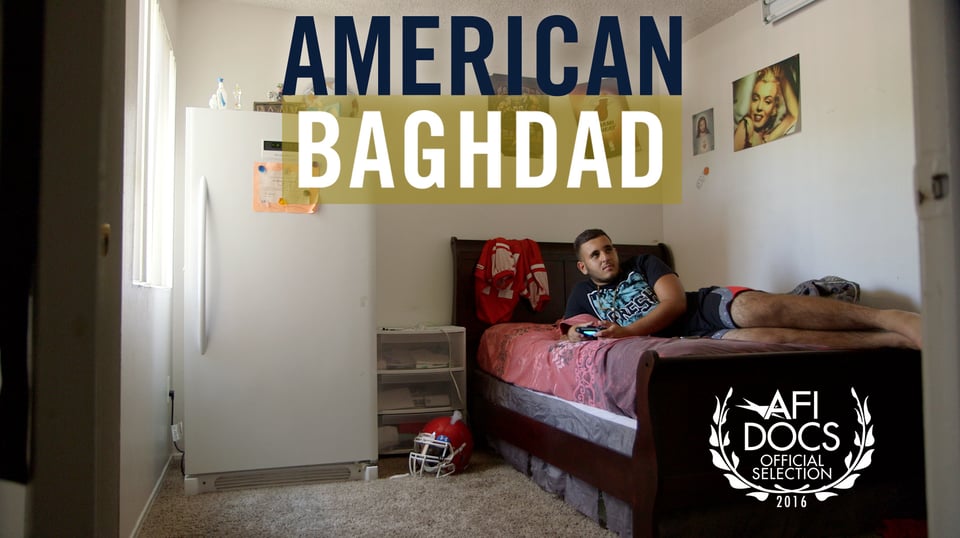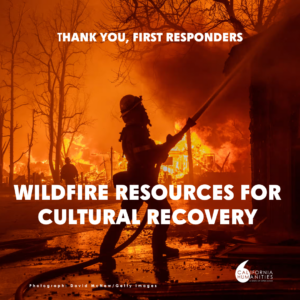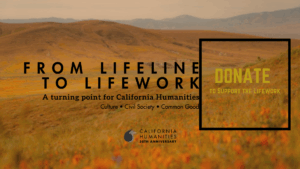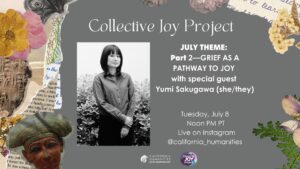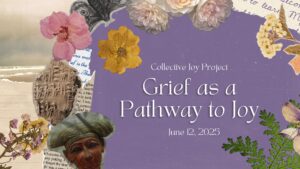AMERICAN BAGHDAD, is a short documentary profiling Iraqi refugees trying to assimilate to American culture after being displaced from Iraq due to the war. El Cajon, a city in San Diego, has one of the highest concentrations of Iraqi refugees in America. A majority of these refugees are known as Chaldean and are of Christian decent. Many of them fled Iraq after the war broke out in 2003.
Please tell us a little about yourself.
I grew up in San Diego and attended San Diego State University’s Film School. I was always fascinated with film and wanted to make movies. Once I started working, I usually fell into the role of producer. Initially I was more into narrative filmmaking and I never thought I would venture into documentaries. A friend started a non-profit for foster care children, and approached me about doing a short documentary with him about what he does. I had previously done behind the scenes videos for various artists but helping him with this short documentary about foster care kids really started me thinking about doing a more in-depth short documentary.
It was only in the last 10 years that documentary filmmaking really started to intrigue me. As a result of watching a lot of documentaries through Netflix and HBO and attending film festival screenings, I was opened up to the world of documentaries.
I think my interest in documentaries developed because in the last 10 years or so documentaries have really risen up as something that has become more necessary. I feel that journalism and mainstream news has not been very informative in the past couple decades, and I have felt that documentaries have stepped up and tried to fill the missing gap of informing the public. Part of the reason I wanted to do AMERICAN BAGHDAD was that no one was telling the story of Iraqi refugees in an in-depth way and I felt that there was a void there that I wanted to try and fill with this short documentary.
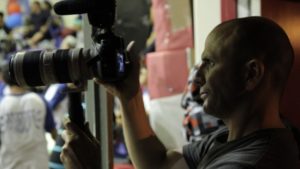
Your current CS-funded project (American Baghdad) documents the experiences of a particular group of Iraqi refugees (Chaldeans) in California. Can you tell how you got interested in this community and these stories?
I’m a first generation Iraqi-American. Both of my parents came here from Iraq, although they were immigrants – not refugees. We are part of the large Middle Eastern and specifically Iraqi population in San Diego. When large numbers of refugees started coming to America as a result of the war, many were sponsored by Iraqi American families in San Diego.
My awareness of the influx of refugees developed slowly, and I didn’t fully understand what was going on within that community, but I noticed that these were just people that were struggling, and no one seemed to understand what they were experiencing. Even before the current presidential campaign, there was a negative take on refugees in general, that troubled me. Because I have access to this community, I thought I’ll try and do this documentary and find a way to give voice to this refugee community.
What did you hope to accomplish by making this documentary?
I wanted to make this documentary to give a face to who a refugee is and shed some light on different aspects of refugee life here in America.These refugees are human beings — just regular people who are dealing with a very difficult situation. I started making this film well before the current election campaigns, so it was never meant to be a politicized film, but all the talk about immigrants and refugees did get me thinking about how I’m going to release this documentary. Both the Seattle International Film Festival and AFI DOCS will be playing it in the next couple months and hopefully getting this film out into the public sooner rather than later will provide an informative narrative where people will want to talk about refugees in a more fully thought out way.
What was the experience of making the film like? Did you run into many challenges?
Interestingly enough, the majority of refugees that I approached did not want to participate in this documentary. This initially surprised me, but I came to understand that it was a big deal for people to lose their old lives, come here and start over, and that they were being asked to relive a traumatic part of their life to someone they didn’t really know. In addition, part of the reluctance stemmed from fear – fear of repercussions from the government here and fear of repercussions that might befall family members and friends still in Iraq. It took the help of my friends and family in the Iraqi community to validate me and convince the new refugees to trust me and open up. Without this, I wouldn’t have been able to get most of the refugees to agree to share their stories.
I was fortunate to find four people that were intriguing and unique in their perspective and characteristics: a young teenager, an older man in his seventies, a woman who held a corporate job back in Iraq, and a young thirty something well-to-do man. I felt that these four stories were vastly different yet still complimented one another when put together in this short documentary.
Looking back on it, I have to say that the grants from the San Diego Foundation and California Humanities pushed me to make the effort needed to go forward and complete the project when initially it seemed no one would participate in the documentary. Had it not been for these generous grants I might have not had the perseverance to stay the course and complete this project.
What has been the response so far from the community?
I did a couple of private screenings in December in San Diego and have also played it at a college and had a couple high school screenings at a charter school. Those screenings opened up some very important discussions that I found to be very engaging. The response from the Iraqi community and general public that saw AMERICAN BAGHDAD has been overwhelmingly positive, and in the discussions that followed the screenings, it was interesting to see the Iraqi community’s perspective and their thoughts as well as the general publics. Some of the content was new to first generation Iraqi-Americans and it was nice to see that the film seemed to be fulfilling the goal I had hoped to achieve of helping the community at large become more informed.
What are your plans for the future?
The upcoming film festivals AFI Docs in Washington D.C. and the Seattle International Film Festival) will be a good litmus test to see how well the film is received in an audience that has no affiliation with me. I found the high school students to be very engaged when I screened the film in San Diego; young people are so much more aware of what’s happening due to social media and the internet. It actually made me feel positive to see how knowledgeable these young people were. Currently, I’m trying to figure out the best method to release the documentary, whether it is online and/or through public screenings. I haven’t fully figured out the release just yet.
Lastly, why do the humanities matter?
To me it’s important to have everybody engaged and as informed as possible; oddly, with technology as good as it is, we somehow seem to be less and less informed. The types of programs California Humanities supports and provides are important to creating a more informed society. Both the State and Federal governments need to realize that it’s an important investment to keep people educated and as informed as possible. Corporate news channels run for 24hrs and despite the money and resources poured into them, I learn very little if anything from them. It’s amazing to me how documentaries, both short and feature length, made by individuals and small groups are far more informative, thoughtful, and engaging then what’s being broadcast in the news. I hope this short documentary can make an impact against the lack of information and the misinformation of what seems to be out there in the world on the topic of refugees.

